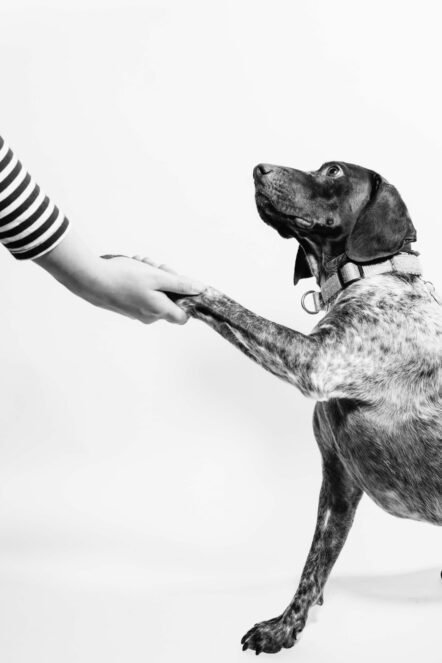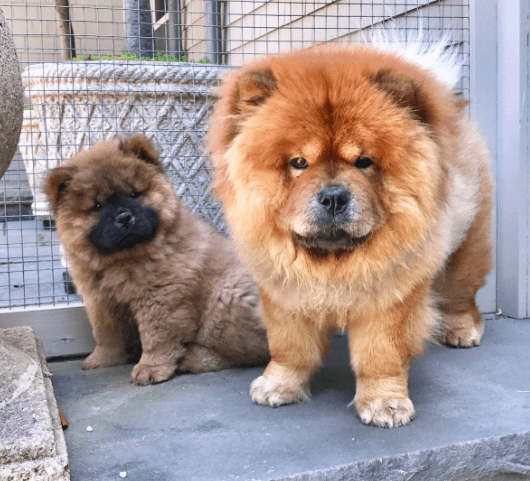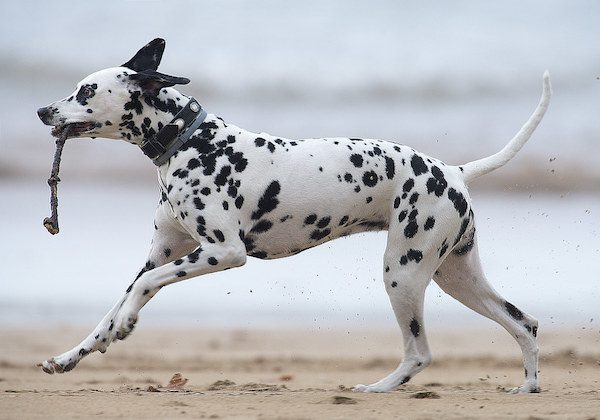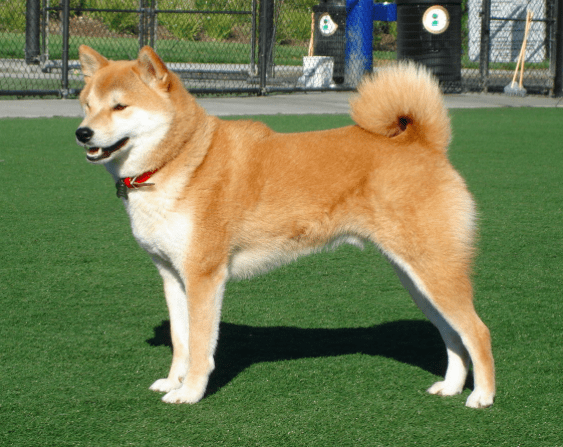
Last Updated on January 15, 2024 by Dogs Vets
Top 7 Hardest Dog Breeds to Train: Patience and Persistence are Key
Training a dog can be a challenging yet rewarding experience. While all dogs have the potential to learn and be trained, some breeds may require extra patience and persistence due to their unique characteristics.
In this article, we will explore the top 7 hardest dog breeds to train and provide insights on how to overcome these challenges.
1. Afghan Hound

The Afghan Hound is a majestic and independent breed known for its elegance and beauty. However, their independent nature can make training a bit of a challenge. Afghan Hounds are intelligent but often have a mind of their own.
Consistency, positive reinforcement, and plenty of patience are key when training this breed.
2. Basenji

The Basenji is a small, energetic breed that is often referred to as the “barkless dog.” While their lack of barking may be appealing, they can be stubborn and independent when it comes to training.
Basenjis are known for their intelligence, but they can also be quite mischievous. A firm yet gentle approach, along with engaging activities, can help keep their focus during training sessions.
3. Chow Chow

The Chow Chow is a breed with a strong-willed and independent personality. They are known for their loyalty and protective nature, but they can also be quite stubborn.
Training a Chow Chow requires consistency, positive reinforcement, and early socialization. Their independent nature can be overcome with patient and persistent training techniques.
4. Dalmatian

Dalmatians are energetic and intelligent dogs, but they can be a challenge to train due to their high energy levels. They require plenty of physical exercise and mental stimulation to keep them focused during training sessions.
Positive reinforcement, consistency, and early socialization are crucial when training a Dalmatian.
5. Jack Russell Terrier

Jack Russell Terriers are small but mighty dogs with a strong prey drive and high energy levels. They are intelligent and quick learners, but their stubbornness can make training a bit of a challenge.
Training a Jack Russell Terrier can be a uniquely rewarding experience, provided you follow a well-structured approach. These energetic and intelligent dogs respond best to training that includes consistent routines, positive reinforcement, and plenty of mental stimulation. Let’s delve into each of these key components to help you effectively train your Jack Russell Terrier.
Consistent Training: The Bedrock of Effective Jack Russell Terrier Training
Consistency is paramount in training any dog, but it’s especially crucial for Jack Russell Terriers, known for their spirited and sometimes willful nature. Here’s how to implement a consistent training regimen:
- Establish Regular Training Sessions: Set aside specific times each day for training. This regularity helps your Jack Russell understand what to expect and when to expect it, creating a conducive learning environment.
- Maintain Uniform Commands: Use the same words and gestures for each command. This uniformity prevents confusion and helps your dog quickly learn what each command means.
- Consistent House Rules: Ensure that everyone in the household understands and enforces the same rules for your dog. Inconsistencies in handling can lead to mixed messages, making training more difficult.
Positive Reinforcement: A Key to Motivating Your Jack Russell Terrier
Positive reinforcement is an incredibly effective training method for Jack Russell Terriers. These dogs are eager to please and respond well to rewards-based training. Here’s how to leverage positive reinforcement:
- Timely Rewards: Immediately reward your dog with treats, praise, or playtime when they follow a command or exhibit good behavior. This immediate reinforcement helps them associate the action with a positive outcome.
- Varied Rewards: Use a mix of treats, verbal praise, and physical affection to keep your dog interested and motivated.
- Reinforce Desired Behaviors: Consistently reward the behaviors you want to encourage. Over time, your Jack Russell will learn that these behaviors lead to positive outcomes.
Mental Stimulation: Essential for the Intelligent Jack Russell Terrier
Jack Russell Terriers are highly intelligent and energetic dogs that require ample mental stimulation to prevent boredom and destructive behaviors. Incorporate mental exercises into your training routine:
- Interactive Play: Engage in games that challenge your dog’s mind, like hide-and-seek, fetch with variations, or puzzle toys.
- Training Variety: Mix up your training sessions with new tricks and commands to keep your dog mentally stimulated.
- Daily Challenges: Incorporate small training challenges into your daily routine. This could be as simple as asking your dog to perform a command before mealtime.
6. Siberian Husky

The Siberian Husky is a beautiful and intelligent breed known for its endurance and strong-willed nature. They have a natural inclination to explore and can be quite independent.
Training a Siberian Husky requires patience, consistency, and positive reinforcement. Their intelligence can be harnessed through engaging training activities.
7. Shiba Inu

The Shiba Inu is a small, confident, and independent breed. They are known for their strong-willed nature and can be quite stubborn during training sessions.
Positive reinforcement, consistency, and early socialization are key when training a Shiba Inu. Their intelligence and loyalty can be effectively channeled through patient and persistent training techniques.
Discover the Secrets to Effectively Train Stubborn and Challenging Dog Breeds
Navigating the complexities of training more challenging dog breeds can seem daunting, but with the right strategies, you can turn this into a rewarding journey. Here’s a guide to mastering the art of training these unique breeds:
Embrace Consistency: The Foundation of Dog Training
The key to successful dog training, especially with stubborn breeds, lies in unwavering consistency. Here’s how to make consistency your secret weapon:
The Importance of Consistency:
Dogs flourish in a stable, predictable environment. By steadfastly maintaining rules and expectations, you help your dog understand and adapt to expected behaviors, reducing their stress and enhancing their obedience.
Implementing Consistency:
Create a structured daily training schedule, focusing on obedience and specific commands. Use the same cues and commands in every session, and ensure all household members are on the same page.
Steer clear of sending mixed signals or making exceptions, as these can lead to confusion for your dog.
Leverage Positive Reinforcement: A Key to Motivating Your Dog
Positive reinforcement is an essential element in your dog training toolkit. This approach focuses on encouraging desired behaviors through rewards. Here’s how to capitalize on positive reinforcement:
Why Positive Reinforcement Works:
Dogs are more inclined to repeat actions that bring them rewards. By offering treats, praise, or affection for obeying a command or displaying good behavior, you provide a compelling reason for your dog to keep up these actions.
How to Apply Positive Reinforcement: Keep a variety of small, appealing treats ready during training. Reward your dog instantly with a treat and enthusiastic praise upon completing a desired action.
Consistently reinforce the behaviors you want to see, ensuring your dog knows what actions earn rewards.
Seek Professional Guidance When Necessary
At times, you might face training challenges that seem insurmountable. In such scenarios, turning to a professional dog trainer can be immensely beneficial. Here’s why professional help can be crucial:
The Value of Professional Expertise:
Experienced dog trainers possess the skills and knowledge to tackle complex behavior issues effectively. They can pinpoint underlying problems and customize a training approach tailored to your dog’s specific needs.
When to Seek a Trainer: Consider professional assistance if your dog exhibits severe behavioral issues, aggression, or doesn’t respond to your training efforts.
First-time dog owners or those feeling overwhelmed should also consider professional guidance for additional support and direction.
Conclusion
Training any dog requires time, effort, and dedication. While these 7 dog breeds may present unique challenges, with patience and persistence, they can be successfully trained.
Remember to establish a strong bond with your dog, use positive reinforcement techniques, and tailor the training methods to suit their individual needs.
By understanding the characteristics of these breeds and adapting your training approach accordingly, you can overcome the challenges and enjoy a well-behaved and obedient companion.
FAQs
Are these dog breeds suitable for first-time dog owners?
A: While these breeds may be more challenging to train, they can still be suitable for first-time dog owners with the right commitment, patience, and willingness to learn.
Can these dog breeds be trained for specific tasks or jobs?
A: Absolutely! Despite their training challenges, these breeds can excel in specific tasks and jobs with proper training, consistency, and positive reinforcement.
Are these dog breeds good with children?
A: Each dog’s temperament may vary, but with early socialization and proper training, these breeds can be good with children. However, supervision and caution are always recommended.
How long does it take to train these dog breeds?
A: The training duration varies depending on the breed, individual dog, consistency of training, and the desired level of obedience. It can take several months to a year to achieve desired results.
Can professional dog trainers help with training these breeds?
A: Absolutely! Professional dog trainers have experience and expertise in handling different breeds, including those that may be more challenging to train. They can provide guidance and support in training these breeds effectively.
Can these breeds participate in dog sports and competitions?
A: Yes! With the right training, these breeds can participate in various dog sports and competitions. Their intelligence and athleticism can be harnessed to excel in activities such as agility, obedience, and rally.
Do these breeds require specialized training techniques?
A: While these breeds may require some additional patience and persistence, the basic principles of positive reinforcement, consistency, and early socialization apply to all dogs. Tailor the training techniques to suit each breed’s unique characteristics and individual personality.
Remember, training a dog is a journey that requires time, effort, and understanding. With the right approach and a positive mindset, you can overcome the challenges and build a strong bond with your furry friend.
References:
Fact Check
We strive to provide the latest valuable information for pet lovers with accuracy and fairness. If you would like to add to this post or advertise with us, don’t hesitate reach us. If you see something that doesn’t look right, contact us!
















